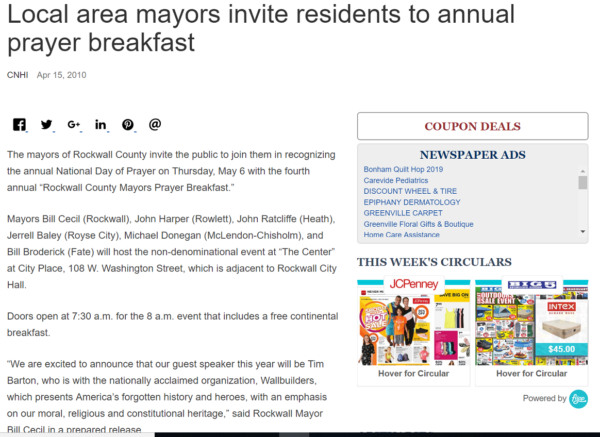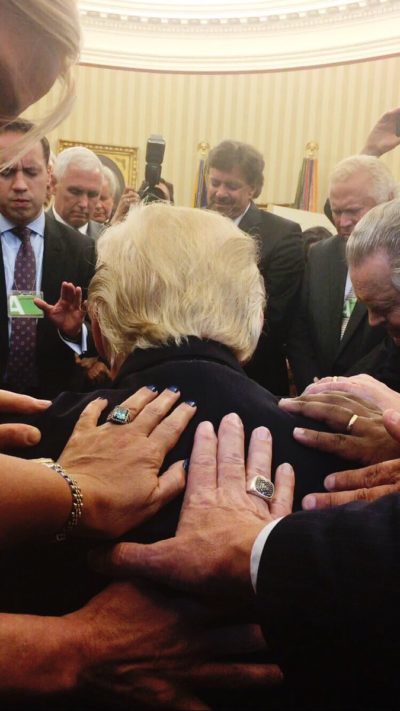On July 14, President Trump tweeted the following message:
So interesting to see “Progressive” Democrat Congresswomen, who originally came from countries whose governments are a complete and total catastrophe, the worst, most corrupt and inept anywhere in the world (if they even have a functioning government at all), now loudly and viciously telling the people of the United States, the greatest and most powerful Nation on earth, how our government is to be run. Why don’t they go back and help fix the totally broken and crime infested places from which they came. Then come back and show us how it is done. These places need your help badly, you can’t leave fast enough. I’m sure that Nancy Pelosi would be very happy to quickly work out free travel arrangements!
Although they were not named, the progressive congresswomen Trump referred to were Reps. Alexandria Ocasio-Cortez, Rashida Tlaib, Ilhan Omar, and Ayanna Pressley. These legislators had been publicly feuding with Nancy Pelosi and Trump waded into the Democrats’ internal conflict.
There are many problems here. The first is that three of the four congresswomen are from the United States. They can’t go back to any other country. Trump has been accused of racism with these tweets because these are all women of color.
I understand the accusation. Growing up in Southern Ohio in the 1960s, I recall hearing white people saying that black civil rights advocates should ‘go back to Africa.’ That made no sense to me since we were all born in the same country, many of us in the same town. However, I eventually figured out the “go back” phrase was a way to put people of color into an outgroup–not us. Users of the “go back” attack wanted to put minority hearers in their place. The message was like things the way they are or leave. Change is not an option.
This is what Trump did with his tweets. He created false categories of “we” and “they.” Trump put Americans he disliked into a category of “their country” and put him and his supporters into “our country.” As soon as I read those tweets, I associated them with the “love it or leave it” and “go back to Africa” rhetoric I heard in the past. I suspect many people of color did as well. This is false and demeaning because the congresswomen are American citizens and entitled to raise their voices in dissent without having their membership in American society challenged. We’re all Americans, right?
Compounding Trump’s error, he attacked the progressive congresswomen because they expressed dissent. Although he has suffered little public push back from Republicans, he is on the wrong side of history with his message. For those Trump supporters who are having trouble seeing the problem, let me cite two former presidents.
In opposition to the 1918 Sedition Act, Theodore Roosevelt defended free speech and the duty to dissent. In an Kansas City Star op-ed just days before a vote on the bill, Roosevelt wrote:
To announce that there must be no criticism of the President, or that we are to stand by the President, right or wrong, is not only unpatriotic and servile, but is morally treasonable to the American public. Nothing but the truth should be spoken about him or anyone else. But it is even more important to tell the truth, pleasant or unpleasant, about him than about anyone else.
Being anti-Trump isn’t being anti-American. According to Roosevelt, citizens have a right to criticize the president. Furthermore, it is our duty to participate to speak up with what we feel is the truth.
Republican President Dwight Eisenhower told a Columbia University audience in 1954 that part of being American is to dissent.
Here in America we are descended in blood and in spirit from revolutionaries and rebels—men and women who dared to dissent from accepted doctrine. As their heirs, may we never confuse honest dissent with disloyal subversion.
Without exhaustive debate – even heated debate – of ideas and programs, free government would weaken and wither. But if we allow ourselves to be persuaded that every individual, or party, that takes issue with our own convictions is necessarily wicked or treasonous–then indeed we are approaching the end of freedom’s road. We must unitedly and intelligently support the principles of Americanism.
Judged by the standards of these Republican presidents, those congresswomen are in the mainstream of Americanism and patriotism. You and I may disagree with their dissent or policy positions, but we cannot disagree with their right and duty to represent their constituents and speak freely. Even if you like Trump’s policies, you should reject the proposition that dissent makes some Americans less American than others. I hope a majority of both parties in Congress will do more than express verbal disapproval, but instead formally and strongly condemn Trump’s divisive rhetoric.
P.S. Will any of the #courtevangelicals come out and condemn these tweets?
These tweets and Trump’s response to them (he doesn’t mind that people consider them racist because many people agree with them) should be a gut check for Trump’s evangelical supporters. Will they really be able to absorb this?
Evangelical Christianity has already taken quite a hit with the Trump presidency and took a body blow with photos of Mike Pence at the border coldly reviewing refugees standing around without room to sit in a smelly containment cell. If Trump gets away with these comments and his defense without evangelical protest, the damage will only get worse.

